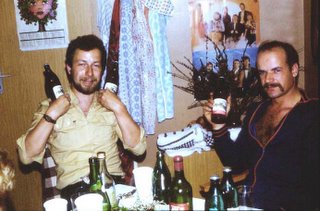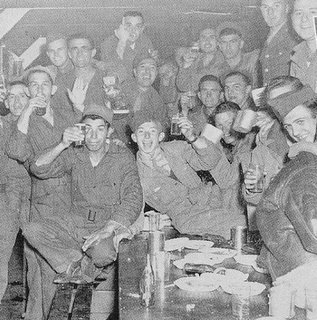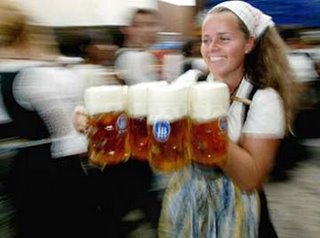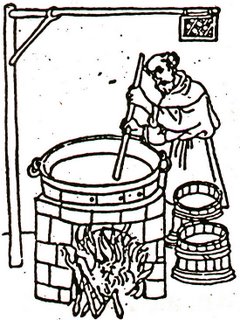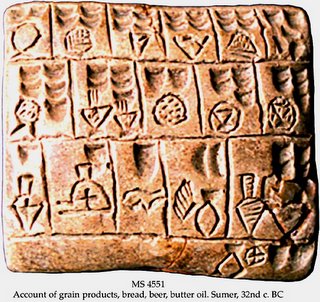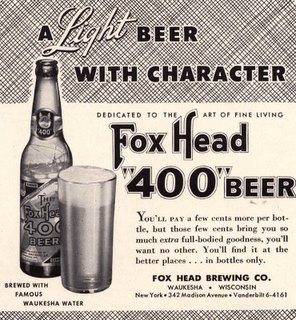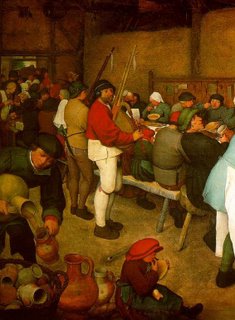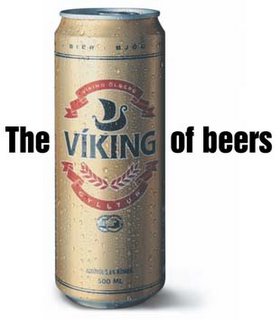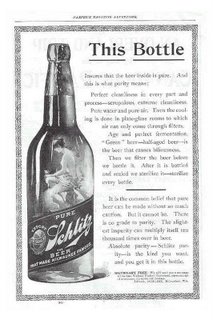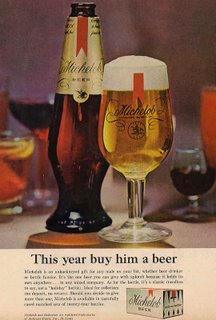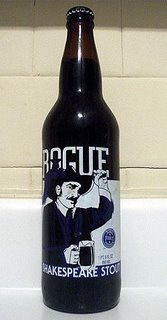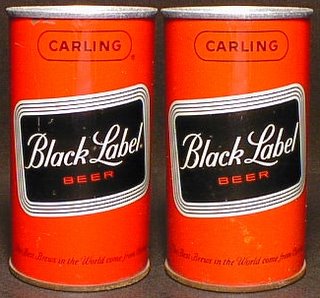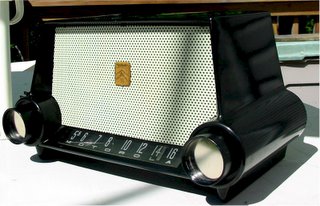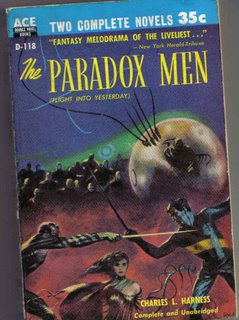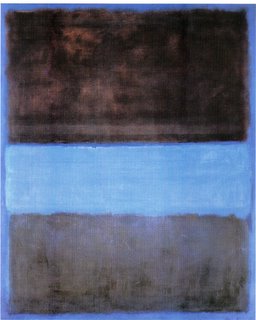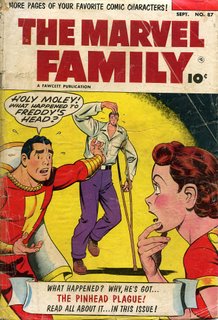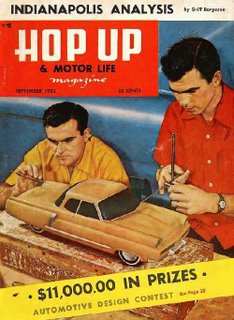
Tom Baker and Lalla Ward, On Paris and Wine.
Tony Bennett and Bill Evans, Days of Wine and Roses.
Dean Martin, Little Ole Wine Drinker Me.
Otis Redding, Champagne and Wine.
Odilio Gonzàlez, Copa de Vino.
The Band, Strawberry Wine.
The Stanley Brothers, Little Glass of Wine.
Screamin' Jay Hawkins, Baptize Me in Wine.
Roy Hawkins, Wine Drinkin' Woman.
Larry Dale, Drinkin' Wine (Spo-Dee-o-Dee).
Lightnin' Hopkins, Drinkin' Wine Spo-Dee-o-Dee.
The Nightcaps, Wine Wine Wine.
The Hollywood Flames, W-I-N-E.
The Handsome Family, So Much Wine.
Ernest Tubb, Warm Red Wine.
A Prelude
"O'Brien took the decanter by the neck and filled up the glasses with a dark-red liquid...Seen from the top the stuff looked almost black, but in the decanter it gleamed like a ruby. It had a sour-sweet smell. He saw Julia pick up her glass and sniff at it with frank curiousity.
'It is called wine,' O'Brien said with a faint smile. 'You will have read about it in books, no doubt. Not much of it gets to the Outer Party, I'm afraid.'
Winston took up his glass with a certain eagerness. Wine was a thing he had read and dreamed about. Like the glass paperweight or Mr Charrington's half-remembered rhymes, it belonged to the vanished, romantic past. For some reason he had always thought of wine as having an intensely sweet taste, like that of blackberry jam and an immediate intoxicating effect. Actually, when he came to swallow it, the stuff was distinctly disappointing. The truth was that after years of gin-drinking he could barely taste it."
George Orwell, 1984.
O Wine
Wine comes in at the mouth
And love comes in at the eye
That's all we shall know for truth
Before we grow old and die.
WB Yeats, A Drinking Song.
Ah: wine. Liquid elegance, the font of conversation, the bottled stuff of dreams and fancies. Appealing to the glutton and the gourmand, the fevered collector with his cellar of rarities and the priest to whom it symbolizes the very substance of God, wine is the closest thing on this earth to consumable sublimity.
It is a dignified drink, an aristocrat. "Grandfather wine," Wynonie Harris called it. Wine is often more expensive than beer--also, it almost dictates being drunk more slowly. Sure, you can chug down a bottle of red wine, but the payback is bound to be brutal, where someone can consume three beers in an hour and feel all right. (Well, I used to.) Wine is generally meant to be consumed with food, whereas, whiskey, for example, is drunk alone.

And wine songs? Not as rousing as beer songs--they are far more romantic and wistful, with traces of lost youth, faded or burgeoning love, or nostalgia. They smack of the past--reflecting the fact that, via wine, you can actually discover what a vanished year tasted like. But certainly, like most popular tunes about alcohol, a good many revolve around getting drunk.
A quintessential wine song could be "Days of Wine and Roses." Originally written by Johnny Mercer and Henry Mancini for the 1962 film starring Jack Lemmon, it soon became a standard.
The title comes from the 19th Century poet Ernest Dowson's Vitae Summa Brevis Spem Nos Vetat Incohare Longam:
They are not long, the days of wine and roses:
Out of a misty dream
our path emerges for awhile, then closes
within a dream.
This version, sung by Tony Bennett over Bill Evans' accompaniment, is from 1975; it's on the functionally-titled Tony Bennett-Bill Evans Album.

"I'm prayin' for rain in California
So the grapes can grow and they can make more wine..."
Another use of wine as comfort for lost love is Dean Martin's "Little Ole Wine Drinker Me", a Big Rock Candy Mountain contribution. It hails from 1967, debuting on the pop charts the same week "All You Need is Love," "Light My Fire" and "White Rabbit" were in the top 10. On tons of compilations--here's one.
And then there's a Rev. Frost selection, "Champagne and Wine", in which wine symbolizes lost happy, high times. An absolutely masterful track, recorded in 1967, soon before Otis Redding's death--released posthumously on The Immortal Otis Redding.

After the Flood
According to Hebrew legend, the first winegrower was Noah.
As an example of the wonderful oddness of the Old Testament, we have Noah, who, mind you, only a chapter before had preserved the human race (and animal races) and had made a covenant with Yahweh, now getting bare-assed drunk and having to be hauled off to bed by his ashamed sons.
From the Book of J, an attempt to isolate the voice of the first writer of the Torah:
So it was: Noah, who tills the soil, is the first to plant a vineyard. Now he drank from the wine, now he was drunk, now he lay uncovered in the middle of his tent.
The one who fathered Canaan, Ham, enjoyed his father's nakedness: now he tells it to the two brothers outside.
But Shem and Yafat took a cloak, draped it over their shoulders, walked in backward, covered their naked father, faces averted...
Roused from his wine, Noah learned what happened, what his youngest son made of him. 'A bitter curse on Canaan,' he said. 'A servant to his brothers servants.'
There is a midrash in which Noah and Satan (!) actually plant the first vineyard together. Satan does his part, too, sacrificing animals and mulching their bodies into the soil.
No matter who the first wine grower (or wine drunkard) was, it is likely that wine is the oldest alcoholic drink known to humanity--it is a primordial drink for human beings, along with water and milk. Unlike beer, it needs no alchemy to work--all you have to do is crush grapes and keep them in a vat for a while. Some speculate wine's origins lie in the dawn of the Neolithic Era, around 9,000 B.C.

Wine naturally first came to prominence in the areas where the wild grape had established itself--basically, the Mediterranean, the Black Sea and the Caspian Sea. Some current theories now have wine first emerging in the Caucasus mountains (today's Armenia and Iran), sometime between 9,000 B.C.-5,000 B.C. Imagine winemaking as a long vine traversing westward, from Persia to Mesopotamia, to Phoenicia and Egypt, to at last Greece, the first civilization to make wine into a centerpiece of its cultural life.
Greeks bearing gifts
"Once you see the glint of wine shining at the feasts of women, then you may be sure the festival is rotten."
Euripides, the Bacchae.
By 2,500 B.C., vines were being cultivated in Crete and likely mainland Greece, and as wine grew in prestige in places like Assyria and Egypt (where it was literally the drink of kings--no one else could afford it), wine took root throughout Greece, where, unlike in the desert empires, the wild grape could be grown seemingly everywhere, by anyone.
By 700 BC, when the poet/farmer Hesiod, was writing, wine drinking was already encrusted in ritual. In the Works and Days, a sort of philosphical farming manual, Hesiod advises:
Never, from dawn forward, pour a shining libation
of wine to Zeus and the other immortals
without washing your hands first.
Nor are you, when attending a party, to put the wine-ladle on top of the mixing bowl, as it brings "accursed bad luck". (Hesiod also advises not to urinate standing up and facing the sun.)

Tom Standage, whose book A History of the World in Six Glasses has inspired these posts (and who is reading this, I think--hello!), shows how much of Western philosophy owes its origins to wine, as wine was the fuel of formal drinking parties--symposia--at which the likes of Socrates and Plato held court.

One thing modern wine-fiends may find odd is that the Greeks (and later the Romans) considered it utterly barbaric to drink wine without diluting it with water. At symposia, wine would be mixed in a three-handled vessel called a krater. Standage: "Typical mixing ratios of water to wine seem to have been 2:1, 5:2, 3:1 and 4:1." Extremely strong wine was mixed with water 1:1. (The Greeks believed only Dionysus could drink unadulterated wine.)
Dilution was meant to prevent people from getting wasted on wine--wine was meant to loosen the tongue, to inspire someone to compose a witty verse or make a salient point, not to get a bunch of people falling around drunk. (Even today, many European parents mix wine and water for their children.)

Of the inheritors of the Greeks, perhaps the French still come close to this ideal.
"Wine is felt by the French nation to be a possession which is its very own, just like its three hundred and sixty types of cheese," says Roland Barthes. "Other countries drink to get drunk; in France, drunkenness is a consequence, never an intention." (I haven't asked the Rev. if this really is the case.)
Or as the Doctor would say to his companion Romana, Paris has "an ethos...like a good wine, it has a bouquet." From the serial City of Death, written mainly by Douglas Adams, that aired in late 1979, probably the best Doctor Who story in the show's long history. Tom Baker was the fourth Doctor (the one with the scarf), Lalla Ward co-starred with him for a time (and married him, for about a week).

As a rebuttal, enjoy "Strawberry Wine," in which Levon Helm just wants to feel good all the time--don't dilute his glass, please. "Strawberry Wine," sung blearily by Helm (on heroin at the time), is from the Band's creepy, hermetic Stage Fright from 1970.
Interlude on Port
"Port is the wine proper to the heavy drinker...The heavy port drinker must be prepared to make some sacrifice of personal beauty and agility. Port is not for the very young, the vain and the active. It is the comfort of age and the companion of the scholar and the philosopher."
Evelyn Waugh, Wine in Peace and War.
Aliud vinum, aliud ebrietas

The Romans took pretty much everything of note from the Greeks--from their philosophies to their gods--and so wine was no different.
Yet as Standage points out, the Roman convivium (drinking party) was a different affair from the Greek symposion. Where in the symposion, everyone drank from the same krater, in the Roman convivium hierarchy was essential--the nobility drank the best wine, separately from those of the lower ranks. Roman society was tiered by wine--the nobles got the best stuff, generally the legendary Falernian; Roman soldiers were issued posca (wine that had turned to vinegar, alleviated by water); and the poor received lora, "made by soaking and pressing the skins, seeds and stalks left over from wine making" (Standage). That said, the poor got angry when they didn't get their wine rations--Ammianus Marcellinus, the chronicler of the Empire's final years, mentions a number of Roman wine riots.

"When we have meat before us, we have the impression...that this is but the dead body of a bird or pig, and again, that this Falernian is only a little grape juice...In just the same way we should act all through life." Marcus Aurelius (who, nonetheless, drank lots of Falernian, essentially living on it during his last days).
"Copa de Vino" (wine glass) is by Odilio Gonzalez, a guitarist and composer from Puerto Rico about whom I know little, except I like the songs I've heard (anyone with more info, please let me know). Recorded in 1966; lots of Gonzalez here.
The Blood of Christ
Indulge, for a minute, in a bit of alternate history.
The Roman emperor Julian, rather than dying in battle with the Persians, has a long, vigorous life, during which the fervently pagan emperor stamps out Christianity's growing influence in the Empire.
However, the Word travels unimpeded to the barbarians beyond the Rhine and the Danube. The Goths and Franks, the Alamanni, the Vandals, even the Huns, are eventually converted to the cross. And so the neo-pagan Roman Empire falls to the Christianized barbarians, who sack Rome and leave it for dead. In its place as a cultural center rises, say, Berlin, the center of the Christian Visigoth Empire and its one Holy and Apostolic Church.
Two millennia later, Berliner Catholics across the globe attend mass every Sunday, during which the priest offers communion, distributing the wafers and drinking from a huge, jeweled flagon of beer.
Well, it's unlikely. After all, wine is a core ingredient of Christianity, appearing throughout the New Testament, from the miracle at Cana(Christ turning water into wine, a great party trick of His) to the Last Supper, in which he besought his disciples to drink wine in memory of him, and comparing himself to a vineyard.
And so wine, while falling out of favor in northern Europe and England during the Dark Ages, persevered, due to both the ingrained wine culture of the Mediterranean, and the Christian monks, who needed vineyards for communion wine. (We owe Chardonnay, for example, to Cistercian monks from that region of France.)
Wine continues to be the centerpiece of the Catholic Church. For instance, here's Pope Benedict XVI, just two months ago: "Wine, on the other hand, expresses the excellence of creation and gives us the feast in which we go beyond the limits of our daily routine: wine, the Psalm says, "gladdens the heart".
A mite more blasphemous, here is Screamin' Jay Hawkins' "Baptize Me in Wine", a wild dark resurrection, from 1958, contributed by Brian at Big Rock. On She Put the Wammee on Me.
Or the Stanley Brothers' "Little Glass of Wine," in which a spurned suitor poisons a glass of wine to kill his former lover. From 1949, on Complete Columbia Stanley Bros.

Interlude on Champagne
'Would you like some champagne?' she said, indicating a bottle of Dom Perignon cooling in a bucket by the bed. 'I'm not supposed to have any. But--I mean, when you've been through what I've been through...' She laughed and once more uncorked her throat incision, sending her laughter into soundless oblivion.
I opened the champagne and filled two ugly white plastic hospital glasses.
She sighed. 'Hmm, that's good. I really like only champagne. The trouble is, it gives you permanently bad breath. Tell me, have you ever thought you were dying?'
Truman Capote, Portrait of Elizabeth Taylor.
Snobs

"My dear girl, there are some things that just aren't done, such as drinking Dom Perignon '53 above the temperature of 38 degrees Fahrenheit. That's just as bad as listening to the Beatles without earmuffs!" Sean Connery, Goldfinger.
Wine, with its mystique, its (at times) overpricing and its storied history, naturally has created a society of snobs. It begins with the Romans, the first to obsess over vintages and years, and continues to this day. There's not enough space to write about the phenomenon of Robert Parker, who has created a sort of Consumer Reports for wine, enabling aspiring snobs to rank wines by "scores."
Or Sideways, which, while sending up wine snobs, likely created a slew more. Take Paul Giamatti's tirade against Merlot, which suddenly made the once-hip varietal the butt of a joke and may have killed sales.
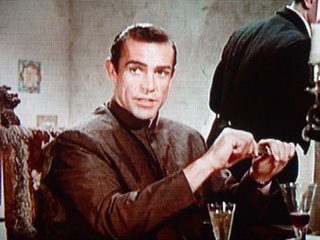
Perhaps the greatest snob revenge story is Poe's Cask of Amontillado. You likely know the story--the narrator, Montresor, long bearing a grudge against his rival, Fortunato, discovers the best way to dispatch him.
"He had a weak point --this Fortunato --although in other regards he was a man to be respected and even feared. He prided himself on his connoisseurship in wine." So, tempting Fortunato with the news he has a cask of Amontillado, Montresor lures Fortunato into his cellar. First Montresor offers Fortunato a "draught of Medoc" to get him good and drunk, then manacles Fortunato to the wall and entombs him.
(Below, a modern variant featuring Batgirl in the Fortunato role)

As an alternative to snobbery, enjoy "Wine Drinkin' Woman," by Roy Hawkins (another Big Rock choice.) From 1950, and can be found on The Thrill is Gone.

Spo Dee o Dee
In these days I am ever befuddled with wine.
But it is not for nourishing my nature and soul.
When I see that all men are drunk,
How can I bear to be the only one sober?
Wang Chi.
To be honest, there isn't that much difference between popular songs about wine and those about other alcoholic drinks--drinking to excess is the key, though I've always found that imbibing too much wine creates the worst hangover in the world.
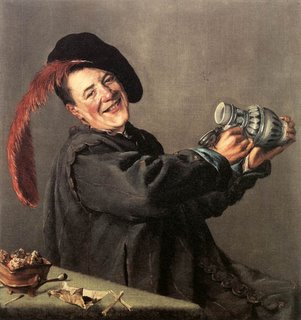
The essential getting-wasted-on-wine song is "Drinkin' Wine Spo-Dee-O-Dee", originally recorded by Stick McGhee in 1947 (and rerecorded for Atlantic in '49), which inspired a slew of interpretations, from Jerry Lee Lewis to Johnny Burnette. "Spo-dee-o-dee" is a replacement for "motherfucker," McGhee's original end phrase.
Here's a couple lesser-known covers, thanks to Big Rock and the Rev.: Larry Dale's version is from 1962, (on Messing with the Blues) while Lightnin' Hopkins' take, from 1961, is on Blues in My Bottle.
And "Spo Dee o Dee" spawned a number of collateral descendants, as a host of people realized singing "wine, wine, wine" was a pretty easy way to write a chorus. Here are two--first, the Nightcaps' "Wine Wine Wine", from 1962, found here. This single was one of the 7" 45s that the late John Peel always carried around with him in a wooden case.
In the Hollywood Flames' "W-I-N-E", from 1950, the singer chastizes his woman for bringing home whiskey instead of wine (I guess he was boozing with a swanker set of people than usual). On Hollywood Flames.
Rotgut
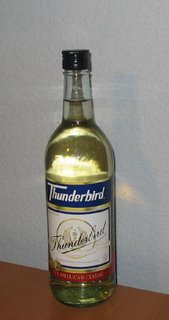
"That was a relief. But the wine was not. It was cheap, new wine, bitter and sour, made of the leavings and scrapings of the vineyards and the vats, and it tasted far worse than beer. There is only one way to take medicine...I threw my head back, and gulped it down. I had to gulp again and hold the poison down."
Jack London, John Barleycorn.
When wine is cheap and bad, it really could be the most vile beverage on earth. I can't pinpoint the best bottle of wine I've ever had, but I certainly can remember the worst.
We were running low at a party in Boston back in the '90s, so a friend ran out to grab some wine, returning with a nasty bruise-colored rotgut punch that smelt like burnt cork. Stupidly, I drank two full glasses and woke the next morning feeling as if someone had taken a crowbar to my skull, then pumped my guts full of creosote. (Disgusting details omitted.) I then spent much of the day in an ambulatory coma, being deposited at my apartment in New York with scarcely any memory of how I got there.
As we sailed along, Dr. Johnson got into one of his fits of railing at the Scots...
Boswell: 'We had wine before the Union (with England).'
Johnson: 'No sir, you had some weak stuff, the refuse of France, which would not make you drunk.'
Boswell: 'I assure you,sir, there was a great deal of drunkenness.'
Johnson: No, sir, there were people who died of dropsies, which they contracted in trying to get drunk.'
James Boswell, A Tour of the Western Isles and Hebrides.
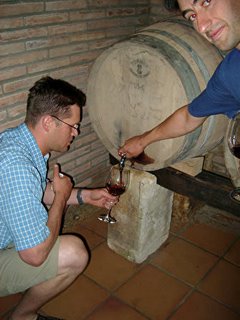
Wine drinking can be corrosive--i.e, The Handsome Family's "So Much Wine", which is on 2000's In the Air. Handsome Family tour dates, merch.
But let's end on a grace note, with Ernest Tubb's "Warm Red Wine," a celebration of wine's powers and joys. Recorded in Seattle in 1965, found on the essential Complete Live 1965 Show.
Old wine in old bottles
As opposed to beer, I have few recommendations for wine. First, I just can't stomach any type of white wine, even on a hot day, so I'm a bit useless there. Some favorite reds include Coppolla (since 1980, I'd say Coppolla wines> Coppolla films) and RL Buller Muscat. Any oenophiles with recommendations, put 'em in the comments.
Want to try to taste what the Greeks drank? Modern Greek grape varieties such as Limnio, Athiri, Aïdani, Muscat, etc., are believed to be surviving examples of ancient grapes. "It is known that, at various times, the wines of Hios, Thassos and Lesvos were highly regarded and that the wines of Samos were not." More here.

Also, several Roman wines have been recreated by Herve Durand at the Mas des Tourelles winery in the south of France. Standage says one such wine, Mulsum, "is a red wine that contains herbs and honey; it is sweet, but not overly so, with spicy notes." Another is Turriculae, a white wine made with sea water and herbs (mainly fenugreek). A third is Carenum, a desert wine consisting of red wine mixed with defrutum, a boiled-down spiced wine used by the Romans as a cooking ingredient.
Salut!

